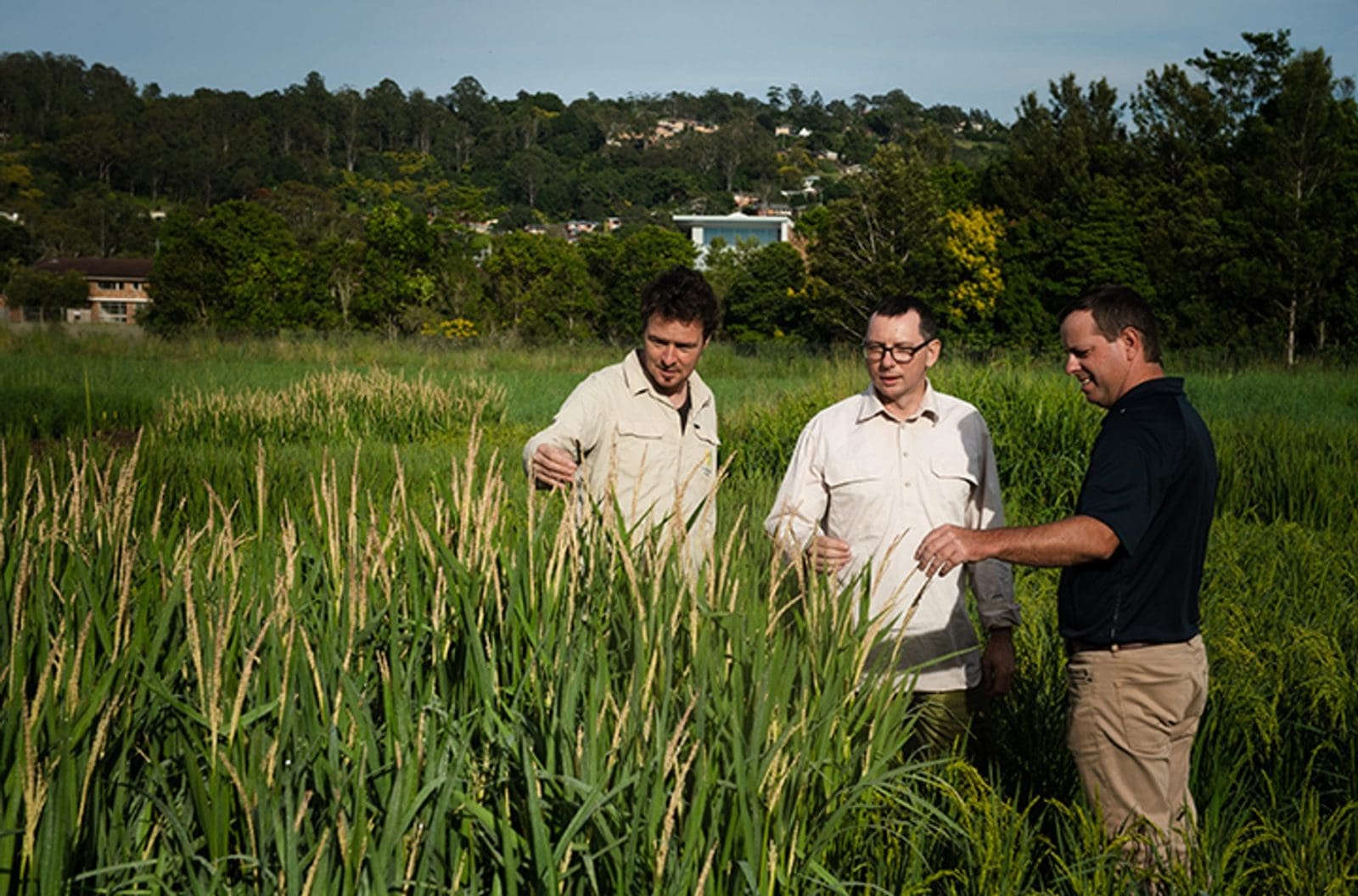
Researchers Tobias Keetzschmer and Szabolcs Lehoczki-Krsjak and Steve Rogers from Natural Rice Co. at the experimental rice crop in Lismore. Photo: SCU
SOUTHERN Cross University is partnering with New South Wales Northern Rivers rice grower, Natural Rice Co, on a new project to combine drought and cold-tolerance traits in rice to improve dryland production.
The initiative is led by Szabolcs Lehoczki-Krsjak, a research fellow in rice breeding and genetics.
The Australian Research Council has awarded an industry fellowship worth $417,391 over three years to Dr Lehoczki-Krsjak for Speed breeding with a twist for water-saving low-carbon rice.
The fellowship will allow Dr Lehoczki-Krsjak to continue exploring sustainable dryland rice production in the Northern Rivers region, where abundant rainfall, rather than irrigations, is the crop’s water source.
“The ARC Early Career Industry Fellowship will support us in developing a speed-breeding method by extending the rice growing period to investigate stress tolerance and to grow and select two crops per year at the nursery,” Dr Lehoczki-Krsjak said.
“My aim is to examine drought and cold tolerance in rice and, once I’ve found genotypes with the necessary stress tolerance level, I’ll dissect their genetic background to identify which part of their genome carries stress-tolerance genes.
“This will help us to develop new climate-smart varieties of rice.”
Resulting dryland varieties will provide significant benefit by transforming rice production to save water and lower the crop’s carbon footprint while maintaining productivity and profitability.
Dr Lehoczki-Krsjak said methane, the second-most important greenhouse gas contributor, is produced by bacteria that live in the soil of the flooded paddies under oxygen-restricted conditions.
“These bacteria are way less active in methane emission under dryland production.”
Dr Lehoczki-Krsjak’s earlier research, conducted in conjunction with SCU’s Professor Tobias Kretzschmar, has seen the development of new climate-smart lines of rice that not only help save irrigation water, but also reduce greenhouse gas emissions generated by the Australian rice industry.
These varieties include dryland-grown black rices that are high in natural fibre and antioxidant anthocyanins, making them a healthy and tasty dietary choice.
Natural Rice Co general manager Steve Rogers said he was excited to continue working with SCU.
“Producing dryland rice eliminates methane and irrigation,” Mr Rogers said.
“This needs to be the goal of food production into the future.
“This climate we have here in the Northern Rivers is very unique for rice-growing.
“It’s probably the most unique dryland rice-producing area in Australia.
Source: Southern Cross University

HAVE YOUR SAY